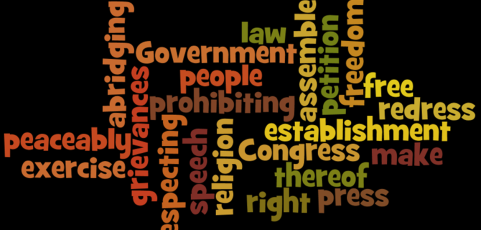Forums come in three types: closed, limited and open. In a closed, and in some limited forums, freedom of expression does not have to be allowed. In some limited forums and in an open forum, freedom of expression, hence civic responsibility, is the cornerstone.
An example of a closed forum is a PTA newsletter. The owner of the forum can control its content. Censorship is allowed. Little learning about the role of a free press in a democracy would take place. Little learning about the various roles of journalism would take place.
• Students have no expectation of freedom of expression.
• Students should have no expectation of learning news or objective journalism.
• Students should have no expectation of creating original pieces.
• Students should have no expectation of decision-making.
• Hazelwood applies.
A limited forum can be limited to whatever the establisher of the forum wants it to be: a forum for sports coverage, for example. It can be reviewed, or not reviewed, by the originator’s designation. If reviewed, the owner of the forum has all the legal responsibility and control. If not reviewed, the students, for example, could be designated as being in charge and bear the freedoms and the responsibility.
A good many student media fall into this category where school districts trust their students, their advisers and their curriculum. Students learn about the media’s role in a democracy, and about their own civic responsibility. If education about the media’s role in a democracy and learning critical thinking and responsibility are the school’s mission, then the second type of limited forum is used.
In a limited-closed forum:
• Students have no expectation of freedom of expression.
• Students should have no expectation of learning news or objective journalism.
• Students should have no expectation of creating original pieces.
• Students should have no expectation of decision-making.
• Hazelwood applies.
In a limited-open forum:
• Students have an expectation of freedom of expression.
• Students should expect to learn news or objective journalism.
• Students should expect to create original material.
• Students should expect to make decisions.
• Tinker applies if there is no prior review.
The third category is an open forum, much like speaker’s corner in the United Kingdom. Anyone can speak, and the school (government) bears no legal responsibility. Schools can designate student media as open forums by policy or practice. This is noted within the Hazelwood decision, as is a limited open forum with student decision-making control.
Within the open and limited forums, students would certainly not publish any materials they found to be unprotected speech, or materials containing (added for clarity) libel, obscenity, material disruption of the school process (Tinker guidelines), unwarranted invasion of privacy and copyright infringement. Students would be taught this through a journalism curriculum by a trained adviser or through workshops and seminars available to an extracurricular publication.
• Students have an expectation of freedom of expression.
• Students should expect to learn news or objective journalism.
• Students should expect to create original material.
• Students should expect to make decisions.
• Tinker applies if there is no prior review.




